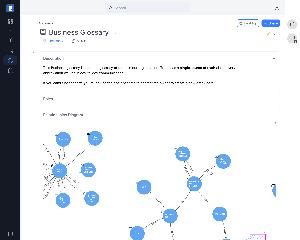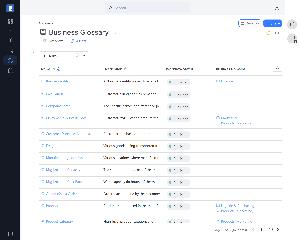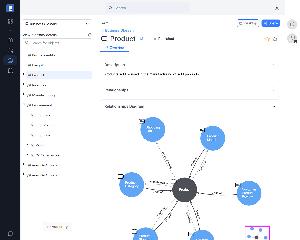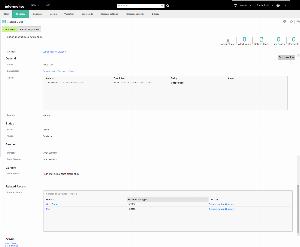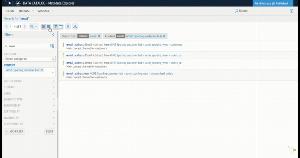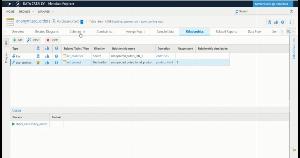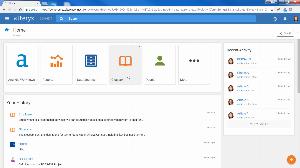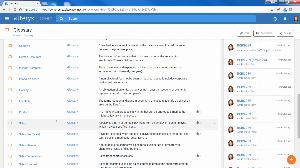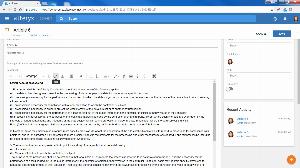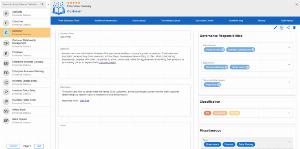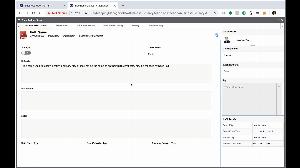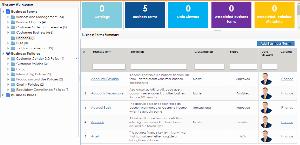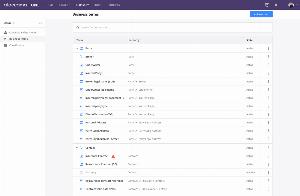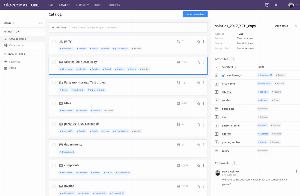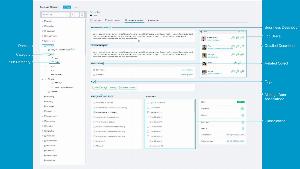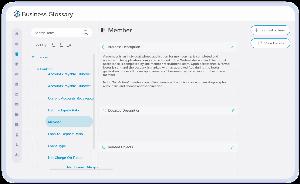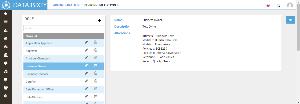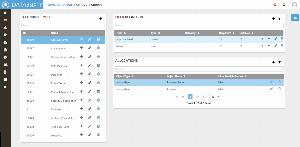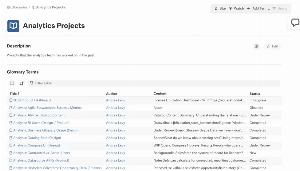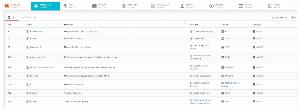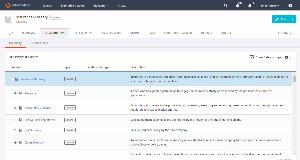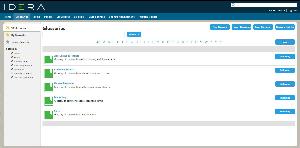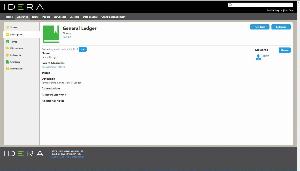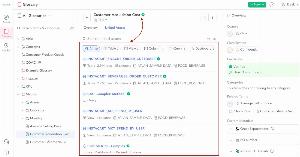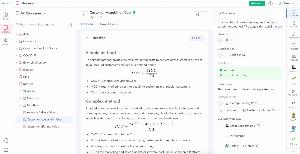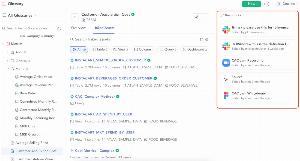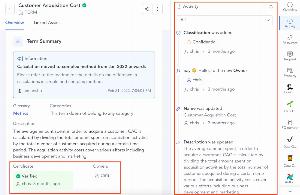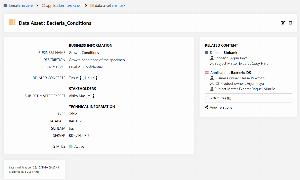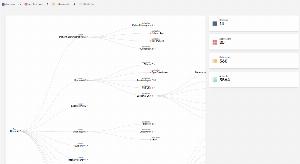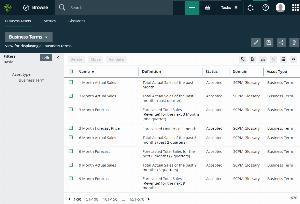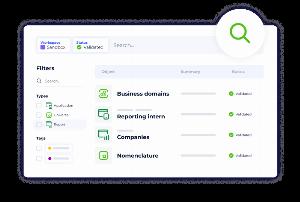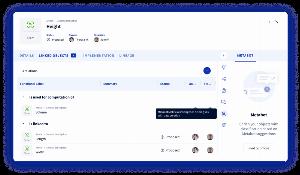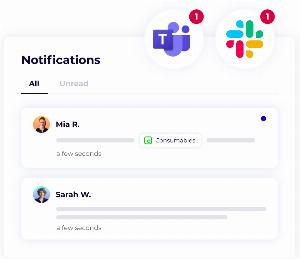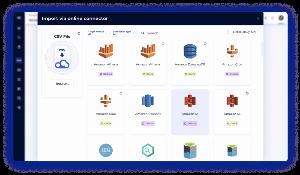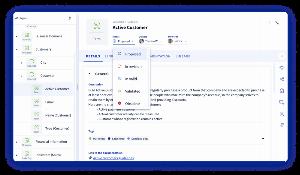Business Glossary tools for SQL Server
List of tools that help build, maintain an share business glossaries.
Business Glossary is a collection of definitions and terms used within a business unitorganization. It is not used to define data, but rather to define what a particular term means from a business perspective. The definitions are mapped and logically linked to entities in the database. This enables structured communication between teams and allows them to reveal potential errors resulting from incorrect nomenclature.
Dataedo
Dataedo helps organizations build a structured business glossary to define key business terms, ensuring a common understanding across departments. This reduces confusion, enhances communication, and supports regulatory compliance.
| Data Policies and Rules: |
|
|---|---|
| Export: | HTML,MS Excel,PDF |
| Integration with Technical Metadata: |
|
| Linkage to reports/apps: |
|
| Reference data: |
|
| Support for workflow: |
|
Informatica Enterprise Data Catalog
Informatica Enterprise Data Catalog allows to add rich business context to the data by associating business terms with the right technical metadata. It enables automatic association of business terms with the technical metadata, which helps eliminate a tedious manual process for data governance. This allows business and IT stewards to collaboratively manage business metadata that includes efficient human workflow automation.
| Data Policies and Rules: |
|
|---|---|
| Export: | CSV,MS Excel,Plain text,XML |
| Integration with Technical Metadata: |
|
| Linkage to reports/apps: |
|
| Reference data: |
|
| Support for workflow: |
|
Talend Data Catalog
Talend Data Catalog automatically crawls, profiles, organizes, links, and enriches all your metadata. The tool supports data privacy and regulatory compliance with intelligent data lineage tracing and compliance tracking. With a collaborative user experience, it enables anyone to contribute metadata or business glossary information.
| Data Policies and Rules: |
|
|---|---|
| Export: | CSV,JSON,MS Excel,PDF,XML |
| Integration with Technical Metadata: |
|
| Linkage to reports/apps: |
|
| Reference data: |
|
| Support for workflow: |
|
Alteryx Connect
Alteryx Connect is one of a kind of data governance and collaborative exploration platform for data asset discovery, sharing, and validation. It can be used as an enterprise business glossary where you define your standard business terms in a data dictionary and link them to assets in the data catalog so that context and meaning of assets are consistent across teams with a common vocabulary.
| Data Policies and Rules: |
|
|---|---|
| Export: | CSV,MS Excel,PDF |
| Integration with Technical Metadata: |
|
| Linkage to reports/apps: |
|
| Reference data: |
|
| Support for workflow: |
|
Erwin
erwin Data Literacy enables to build glossaries of terms in taxonomies with synonyms, acronyms and relationships to describe the organization’s data assets. Publish approved standards for these terms to the wider organization to improve clarity/precision of language. Also prioritize terms, flagging information regarding regulatory requirements.
| Data Policies and Rules: |
|
|---|---|
| Export: | MS Excel |
| Integration with Technical Metadata: |
|
| Linkage to reports/apps: |
|
| Reference data: |
|
| Support for workflow: |
|
Ataccama Metadata Management & Data Catalog
Ataccama Data Catalog & Business Glossary tool manages business terms in your organization. Terms are automatically mapped to existing data sets ensuring the Data Catalog and Business Glossary are always synced and up-to-date. Custom hierarchy structure allows organized storing of items into an unlimited hierarchy structure.
| Data Policies and Rules: |
|
|---|---|
| Export: | CSV,MS Excel,XML |
| Integration with Technical Metadata: |
|
| Linkage to reports/apps: |
|
| Reference data: |
|
| Support for workflow: |
|
OvalEdge
OvalEdge is a data governance tool that allows to build a business glossary and define data quality rules. It enables to manage data access through policies, controls, and workflows.
| Data Policies and Rules: |
|
|---|---|
| Export: | - |
| Integration with Technical Metadata: |
|
| Linkage to reports/apps: |
|
| Reference data: |
|
| Support for workflow: |
|
Data3Sixty Govern
Data3Sixty Govern provides data governance that delivers data quality, trust and value in a smart and intuitive solution. It automatically generate a business language for data while easily collaborating across business areas on common data definitions, rules and policies.
| Data Policies and Rules: |
|
|---|---|
| Export: | CSV,MS Excel,XML |
| Integration with Technical Metadata: |
|
| Linkage to reports/apps: |
|
| Reference data: |
|
| Support for workflow: |
|
Alation Data Catalog
Alation’s Business Glossary enables the creation of definitions, policies, rules, and KPIs through a rich, user-friendly interface. By leveraging machine learning, Alation’s Business Glossary automatically suggests business terms, identifies stewards and subject matter experts based on usage patterns, and incorporates crowdsourcing and collaboration to easily scale documentation.
| Data Policies and Rules: |
|
|---|---|
| Export: | MS Excel |
| Integration with Technical Metadata: |
|
| Linkage to reports/apps: |
|
| Reference data: |
|
| Support for workflow: |
|
Axon Data Governance
Axon Data Governance is the collaboration hub for successful data governance programs. It allows you to develop a common data dictionary to provide a consistent source of business context across multiple tools and ensure that teams can quickly find the data they need to uncover analytics insights with an integrated data catalog.
| Data Policies and Rules: |
|
|---|---|
| Export: | - |
| Integration with Technical Metadata: |
|
| Linkage to reports/apps: |
|
| Reference data: |
|
| Support for workflow: |
|
ER/Studio
ER/Studio Enterprise Team Edition provides robust logical and physical modeling, business process and conceptual modeling, creation of enterprise data dictionary, business glossaries, and more. It enables you to document and enhance data and metadata for enterprise architectures, and share and collaborate on global business glossary terms and definitions.
| Data Policies and Rules: |
|
|---|---|
| Export: | CSV,HTML,PDF,XML |
| Integration with Technical Metadata: |
|
| Linkage to reports/apps: |
|
| Reference data: |
|
| Support for workflow: |
|
Atlan
Atlan Business Glossary allows data producers and consumers in an organization to create a living tribal knowledge network across all of their data assets. Powered by a knowledge graph, Atlan allows users to define business terms, categories, policies, relationships and more. Atlan's machine learning based bot ecosystem automates several repetitive tasks associated with maintaining a business glossary such as auto tagging business glossary terms to data assets, propagating classification and glossary tagging rules via lineage, bulk associate glossary terms to data assets via an API and more. Its easy to use google like search interface makes it easy for business users to find the meaning of business terms within seconds while ensuring the compliance of business metadata across the enterprise.
| Data Policies and Rules: |
|
|---|---|
| Export: | - |
| Integration with Technical Metadata: |
|
| Linkage to reports/apps: |
|
| Reference data: |
|
| Support for workflow: |
|
Sidecar
Sidecar business glossary allows you to easily enrich all your data assets with business context, clear definitions, rules and transformations to bring clarity to data consumers. Foster team work among the user community by exchanging ideas on data assets with the collaboration tool. Add custom tags and classifications to organize your assets and manage your sensitive data by building a comprehensive business glossary across your company.
| Data Policies and Rules: |
|
|---|---|
| Export: | CSV,XML |
| Integration with Technical Metadata: |
|
| Linkage to reports/apps: |
|
| Reference data: |
|
| Support for workflow: |
|
Collibra Catalog
Collibra is a data governance and management platform that offers a robust business glossary tool, enabling organizations to define and maintain consistent definitions for business terms, metrics, and data elements. It helps ensure clear communication and understanding across departments by providing a centralized repository for standardized terminology, which supports data consistency, compliance, and improved decision-making.
| Data Policies and Rules: |
|
|---|---|
| Export: | CSV,MS Excel |
| Integration with Technical Metadata: |
|
| Linkage to reports/apps: |
|
| Reference data: |
|
| Support for workflow: |
|
DataGalaxy
DataGalaxy is a collaborative data governance platform that features a powerful business glossary tool designed to help organizations create and manage a centralized repository of business terms and definitions. This tool fosters alignment across teams by enabling users to document, share, and maintain a shared understanding of terminology, enhancing data literacy and promoting effective communication. With its intuitive interface and integration capabilities, DataGalaxy supports organizations in driving data quality, compliance, and informed decision-making.
| Data Policies and Rules: |
|
|---|---|
| Export: | CSV,MS Excel,XML |
| Integration with Technical Metadata: |
|
| Linkage to reports/apps: |
|
| Reference data: |
|
| Support for workflow: |
|
There are many tools for creating business glossaries. Whether sophisticated or not, they allow to create:
• access and alternate names,
• descriptions,
• explanations of how to calculate metrics,
• links to other elements.
To ensure access to all terms from different platforms, many business glossary tools are cross-platform compatible. More advanced tools provide a workflow to ensure that term definitions are updated and approved. In addition to the glossary creation features, the tools allow you to export to user-friendly and easy-to-share formats like PDF and HTML.
Proper communication between teams in an organization is crucial for the success of the project. Similarly, it is important to interpret data correctly. Each of the teams working together (business team, developers, marketing teams), use different nomenclature and terms. Within a team the logical meaning of data elements, acronyms, etc. are defined and understood only by a narrow group of members. This makes the area of inconsistency really wide. Even small misunderstandings can lead to fatal consequences. This is where the business glossary comes into play.
What's more, using glossaries not only makes the communication more reliable, but also improves efficiency and speeds up the decision-making process (e.g. wondering if "customer" means a single person, an organization, and repeating the consideration next time the project is approached).
In our list, we have included noteworthy business tools for creating and reviewing business glossaries.
 SQL Server
SQL Server
 Oracle
Oracle
 MySQL
MySQL
 PostgreSQL
PostgreSQL
 Amazon Redshift
Amazon Redshift
 Azure SQL Database
Azure SQL Database
 DBT
DBT
 Google Big Query
Google Big Query
 IBM DB2
IBM DB2
 MariaDB
MariaDB
 SAP HANA
SAP HANA
 Snowflake
Snowflake
 SQLite
SQLite
 Teradata
Teradata
 Vertica
Vertica
